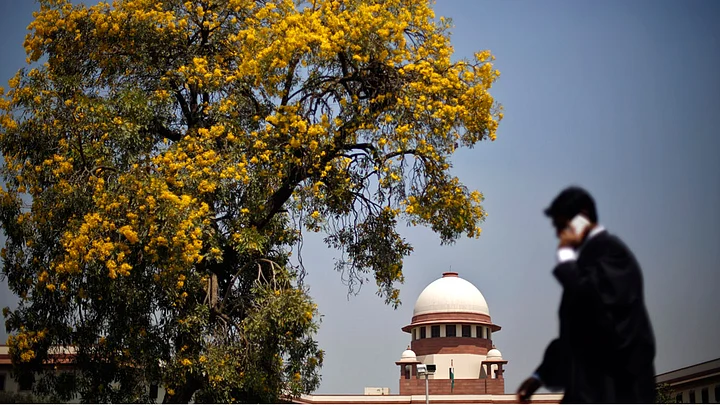After striking a severe blow to the Narendra Modi government’s efforts to make appointment of judges in the higher judiciary transparent, the Supreme Court has now told the political executive not to interfere in granting remission or commuting sentences which attract capital punishment or life imprisonment.
A Constitution bench of Chief Justice H L Dattu (on the eve of his retirement on December 2) and Justices Fakkir Mohamed Ibrahim Kalifulla and Pinkai Chandra Ghose was seized of the issue whether the Tamil Nadu government had correctly exercised the power of remission to Rajiv Gandhi’s assassins two years after an apex court judgment that commuted the death sentence of several convicts on the ground of undue delay in disposing of their mercy petitions by the executive. They were awarded the death penalty which was commuted to imprisonment for life.
There are serious implications of the statutory power of remission (provided under the Criminal Procedure Code) entrusted with the Union government or the executive of a state against the “well thought-out judicial decisions in the imposition of sentence for the related grievous crimes.”
Judiciary Tells Executive to Steer Clear
- There are serious
implications of the statutory power of remission entrusted with the Union
government or the executive of a state
- Executive has been using its
discretion despite an apex court judgment that power
to grant pardon “should not be used arbitrarily or with ulterior motives”
- A trend was noticed in
Haryana, Andhra Pradesh and Tamil Nadu where the accused convicted for life
were prematurely released by executive orders on “dubious considerations”
- Judges have in fact carved
out a ‘special category’ of heinous crimes and ruled that 12 crimes, for which
the penalty of death or life imprisonment is prescribed, must not be interfered
with by the executive
Discretionary Use of Power
The executive has been using its discretion despite an apex court judgment of January 29, 2008, holding that the state’s power to grant pardon to convicts “should not be used arbitrarily or with ulterior motives.” At that time, a bench of Justices H K Sema and Markandey Katju had said: “The special power given to the state authorities should be used only in deserving cases.”
This trend was noticed in Haryana, Andhra Pradesh and Tamil Nadu where the accused convicted for life were prematurely released by executive orders on “dubious considerations” and not for exemplary conduct or behavior during their incarceration.
More recently, the Akhilesh Singh Yadav government in UP granted remission to a hardened criminal though he was under imprisonment for multiple murders, stocking lethal arms like AK-47 and also burying bodies in the compound of his sprawling mansion. After being released from prison, he was sworn in as a cabinet minister in the Samajwadi Party government.
It has also been noticed that once a mercy petition is accepted either by a governor or the President, the state concerned invoked its power to grant remission as in the case of Rajiv Gandhi’s assassins. In certain other cases, a chief minister granted large scale remissions to celebrate the birth anniversary of some political leader or even to celebrate the birth of a son in his family.
Apex Court Stands its Ground
Now, the five-judge bench headed by the then CJI Dattu has said that an offender deserves to be punished with sentence of life imprisonment “for the end of his life or for a specific period of 20 years or 30 years or 40 years” and that the court’s decision must not be interrupted by the executive.
The inherent power of the court should empower it “in public interest as well as in the interest of the society at large to make it certain that such punishment imposed will operate without any remission or a liberal approach by the executive to nullify the sentence.”
Upholding the principle that life sentence means till the convict’s death in jail, the judges also ruled that 12 crimes, for which the penalty of death or life imprisonment is prescribed, must not be interfered with by the executive. They have carved out a ‘special category’ of heinous crimes.
(The writer is a Delhi-based senior journalist.)
